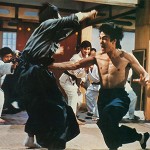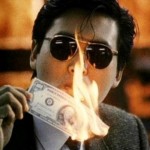TIFF’s A Century of Chinese Cinema Review: The Story of A Discharged Prisoner (1967)

Cast: Tsai-Jung Chan, Chi Chou, Ping Do
Director: Kong Lung
Country: Hong Kong
Genre: Action | Drama
Editor’s Notes: The following review is part of our coverage for TIFF’s A Century of Chinese Cinema which runs from June 5th to August 11th at TIFF Bell Lightbox. For more information of this unprecedented film series visit http://tiff.net/century and follow TIFF on Twitter at @TIFF_NET.
John Woo’s bullet ballet A Better Tomorrow (1986) was inspired by Patrick Lung Kong’s Story of a Discharged Prisoner, which involves crime, drama, and martial arts all in the same film—a hybrid of genres not typically seen in China at the time. Lung Kong, who was also an actor and a stockbroker, tells the story of a former thief whose 15 year stay in prison leaves a dishonourable mark on himself and his family upon his release. Unwilling to let his brother’s success be tarnished by his reputation, Lee Cheuk-Hung (Patrick Tse) stays with a friend, and attempts to find a job and a simple life. This could not be. Action unfolds as Lee is threatened by a triad leader nicknamed One-Eyed Jack; he wants Lee’s help in opening a safe, and once he finds out that Lee is brothers with the left hand man of the company he wishes to rob, everyone becomes involved in a dramatic turn of events.
While the film has some problematic filmmaking—technical or otherwise—it has a strong story backing it up.

While the film has some problematic filmmaking—technical or otherwise—it has a strong story backing it up. Unfortunately, Lung Kong takes too long to get the viewer immersed in it. The film is missing a great deal of information. By thrusting us into the action, we don’t quite understand the characters’ relations to one another or their motivations. They are not well introduced, have little description, and render some scenes quite unintelligible. However, once you’re about halfway, you cease to care. You know who is good and who is bad, and this is all that matters. The characters may not be well developed—they may be one dimensional—but they too are quite amiable, even the evil One-Eyed Jack. This may be due to the fact that the film displays the talents of several great actors, such as Patrick Tse and Wai Wong, who would soon become stars of Chinese cinema.
The disjunctive editing points—abrupt and unexpected cutting—matched with quick action, and obviously fake fighting make these scenes quite bizarre.
The film opens with an action scene in fast motion, a technique utilized in some of the action scenes later. Most of the film, however, is quite a bit slower, with plenty of exposition, conversation, and drama. These scenes, I believe, are the strongest in the film. While the two major action scenes, which are replete with martial arts movements, are fun, they are at times a bit overkill. Just like the diverse soundtrack, which includes jazz, surf rock, country, and a musical interlude that sounds like it should be used for James Bond or Mission Impossible, the action scenes try to do too much in too little of a time. The disjunctive editing points—abrupt and unexpected cutting—matched with quick action, and obviously fake fighting make these scenes quite bizarre. We are also never told how our hero even knows martial arts; I presume he learned it in prison, but some back-story here would have been great.
Once the film slows down, and the story is more fully supported by dialogue and exposition, one can’t help but love the action that leads up to the touching though somewhat illogical ending. Knowing clearly the motivations behind our main character’s actions—that everything he does is for his brother—his sacrificing himself to prevent his brother from receiving a criminal record is quite sincere and moving. In the end, while Story of a Discharged Prisoner certainly has some shortcomings, it’s quite enjoyable and unique, and those shortcomings don’t matter so much anymore.
Related Posts
![]()
Kamran Ahmed
![]()
Latest posts by Kamran Ahmed (see all)



















